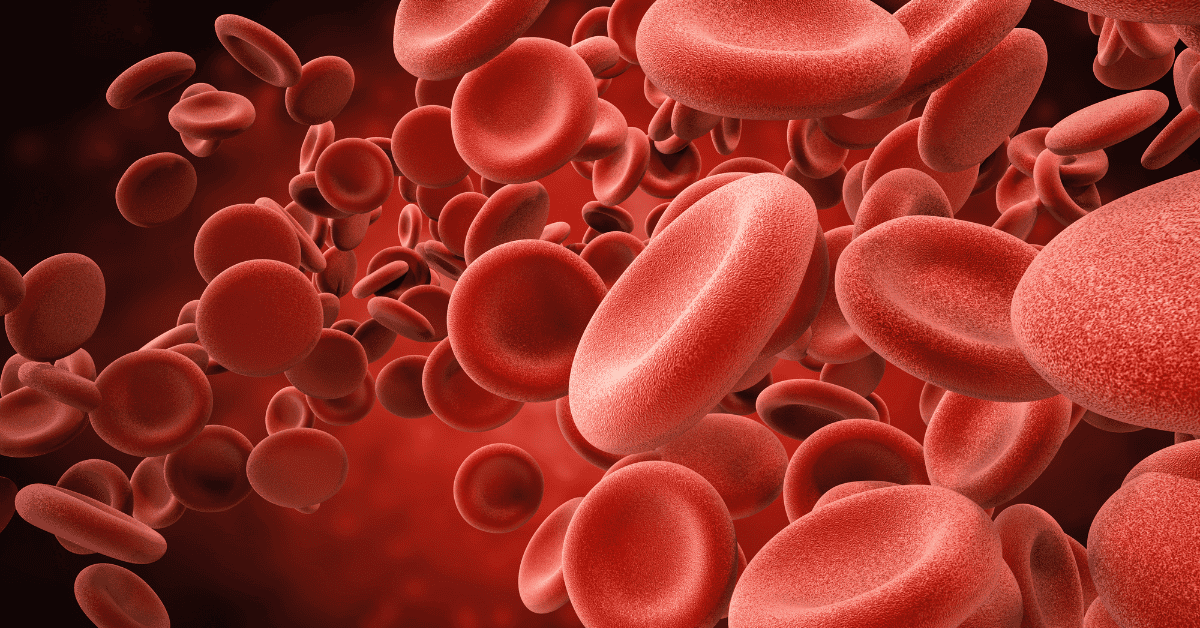
In bodybuilding, supplements can play a key role in enhancing performance.
Two such ingredients that have attention are Agmatine and Arginine.
Both are associated with nitric oxide production, which is vital for muscle pumps and overall workout performance.
However, they differ in their mechanisms of action and effectiveness.
This article delves into both ingredients' benefits, side effects, and dosages, providing a comprehensive comparison to help you make an informed decision.
Agmatine, a metabolite of Arginine, is gaining popularity for its potential benefits in muscle pumps and cognitive function.
On the other hand, despite its initial promise, Arginine is less effective for muscle pumps when taken orally.

Agmatine, a byproduct of Arginine, is an intriguing compound that has captured the attention of the fitness community.
It's not a branched-chain amino acid (BCAA) or directly related to protein but derived from decarboxylation.
The primary function of Agmatine is to inhibit the production of nitric oxide synthase (NOS), an enzyme that breaks down nitric oxide.
This unique mechanism of action has led to a variety of potential benefits.
Research shows that Agmatine may enhance muscle pumps, increase exercise performance, reduce pain, and even enhance cognitive function.
One study even suggests that Agmatine could have neuroprotective effects, opening up potential therapeutic applications beyond fitness.
Check out the best nitric oxide supplements here.
Arginine, an amino acid commonly found in dietary protein, was once touted as a go-to supplement for enhancing muscle pumps.
It was believed that Arginine could increase nitric oxide production, leading to better blood flow and, consequently, improved muscle pumps.
However, recent research has cast doubt on these claims.
Studies have shown that oral supplementation of Arginine may not effectively increase nitric oxide production or enhance muscle pumps as previously thought.
This could be due to the body's complex regulation of nitric oxide synthesis, which involves more than just the availability of Arginine.
When it comes to enhancing muscle pumps, the evidence leans towards Agmatine.
Its ability to inhibit nitric oxide synthase is more effective in promoting muscle pumps than Arginine's indirect role in production.
However, it's important to note that individual responses may vary, and what works best for one person may not work as well for another.
Agmatine has plenty of benefits; check them out below...
One of the most touted benefits of Agmatine is its potential to enhance muscle pumps.
This is mainly due to its ability to inhibit nitric oxide synthase, an enzyme that breaks down nitric oxide.
By inhibiting this enzyme, Agmatine allows for greater nitric oxide availability, leading to better blood flow and, consequently, improved muscle pumps.
Research supports this claim, showing that Agmatine can stimulate nitric oxide production in endothelial cells.
Agmatine's role in nitric oxide production may also affect exercise performance.
Better blood flow can mean improved nutrient delivery to muscles, which could potentially enhance performance during workouts.
While more research is needed in this area, the evidence is promising.
Interestingly, Agmatine may also have analgesic effects.
Some studies suggest that Agmatine could help reduce pain, although the exact mechanisms are not fully understood.
This could potentially benefit individuals dealing with exercise-induced discomfort or chronic pain conditions.
Beyond its physical benefits, Agmatine may also have cognitive benefits.
Research suggests that Agmatine could act as a neuroprotective agent, potentially enhancing cognitive function and protecting against neurological disorders.
Here are some benefits of arginine...
Arginine is a precursor to nitric oxide, a molecule that plays a crucial role in vascular health.
Nitric oxide helps relax and widen blood vessels, promoting better blood flow.
However, it's important to note that oral supplementation of Arginine may not effectively increase nitric oxide production or enhance muscle pumps as previously thought due to its low bioavailability.
Despite its limited effectiveness for muscle pumps, Arginine may have other health benefits.
Some studies suggest that Arginine could help improve heart health by promoting better blood flow and reducing blood pressure.

Arginine plays a key role in protein synthesis, making it important for muscle growth and repair.
It also produces creatine, a compound that provides energy to your muscles.
When it comes to enhancing muscle pumps and exercise performance, Agmatine appears to have the upper hand.
Its ability to inhibit nitric oxide synthase allows for greater nitric oxide availability, leading to better muscle pumps and potentially improved exercise performance.
On the other hand, despite being a precursor to nitric oxide, Arginine does not seem to be as effective for enhancing muscle pumps when taken orally due to its low bioavailability.
However, it may have other benefits, such as promoting heart health and playing a role in protein synthesis.
In conclusion, while Agmatine and Arginine have unique benefits, they serve different purposes and are not interchangeable.
As always, individual needs and goals should guide supplement choices.
Like any supplement, Agmatine and Arginine have potential side effects and interactions.
Some users of Agmatine have reported mild gastrointestinal discomfort, although these reports are relatively rare.
As for Arginine, some people may experience stomach discomfort or a change in blood pressure.
It's always recommended to start with a lower dose to assess tolerance.
Agmatine and Arginine can benefit those looking to enhance their workout performance, particularly regarding muscle pumps.
However, as with any supplement, it's important to consider individual goals, health status, and dietary needs.
People with low blood pressure or those taking blood pressure medication should exercise caution with these supplements, particularly Arginine, as it can further lower blood pressure.
As always, it's best to consult a healthcare provider before starting any new supplement regimen.
While Agmatine and Arginine have unique benefits, comparing them to other popular supplements in the fitness world is worth comparing.
For instance, creatine is a well-studied supplement known for its strength and muscle gain benefits.
Beta-alanine is another supplement that can enhance endurance and performance.
The dosages can vary for both ingredients; here are the recommended dosages...
Agmatine dosages can vary depending on individual needs and goals.
However, a common dosage range is 500mg to 2g daily.
It's always recommended to start with a lower dose to assess tolerance and gradually increase if needed and as tolerated.
Arginine dosages can also vary, but a typical dosage range is between 1g to 6g per day.
As with Agmatine, it's best to start with a lower dose to assess tolerance and adjust as needed.

What is the main difference between Agmatine and Arginine?
The main difference between Agmatine and Arginine lies in their mechanisms of action and their effects on nitric oxide production. Agmatine inhibits nitric oxide synthase, potentially leading to better muscle pumps. In contrast, despite being a precursor to nitric oxide, Arginine may not be as effective for enhancing muscle pumps when taken orally due to its low bioavailability.
Can I take Agmatine and Arginine together?
While it's technically possible to take Agmatine and Arginine together, it may not be necessary or beneficial due to their similar mechanisms of action. It's always best to consult with a healthcare provider before starting any new supplement regimen.
Are there any side effects of Agmatine and Arginine?
Some users of Agmatine have reported mild gastrointestinal discomfort, although these reports are relatively rare. As for Arginine, some people may experience stomach discomfort or a change in blood pressure.
Who should consider taking Agmatine or Arginine?
Agmatine and Arginine can benefit those looking to enhance their workout performance, particularly in terms of muscle pumps. However, as with any supplement, it's important to consider individual goals, health status, and dietary needs.
Who should avoid taking Agmatine or Arginine?
People with low blood pressure or those taking blood pressure medication should exercise caution with these supplements, particularly Arginine, as it can further lower blood pressure. As always, it's best to consult with a healthcare provider before starting any new supplement regimen.
How do HydroPrime and GlycerPump compare to Agmatine and Arginine?
HydroPrime and GlycerPump are forms of glycerol, a compound that can enhance hydration and endurance. While they share some similarities with Agmatine and Arginine, their mechanisms of action are different, and they serve different purposes in a supplement regimen.
Can Agmatine help with pain?
Some studies suggest that Agmatine could help reduce pain, although the exact mechanisms are not fully understood. This could potentially benefit individuals dealing with exercise-induced discomfort or chronic pain conditions.
Does Arginine have benefits beyond muscle pumps?
Despite its limited effectiveness for muscle pumps, Arginine may have other health benefits. Some studies suggest that Arginine could help improve heart health by promoting better blood flow and reducing blood pressure.
What are the recommended dosages for Agmatine and Arginine?
A common dosage range for Agmatine is between 500mg to 2g per day, while for Arginine, a typical dosage range is between 1g to 6g per day. As always, starting with a lower dose is best to assess tolerance and adjust as needed.
Are there any interactions to be aware of with Agmatine and Arginine?
As with any supplement, interactions with other supplements or medications are possible. It's always best to consult a healthcare provider before starting any new supplement regimen.
In conclusion, Agmatine and Arginine offer unique benefits but are not interchangeable.
Agmatine appears to be more effective for enhancing muscle pumps, while the benefits of Arginine may lie elsewhere.
As always, individual needs and goals should guide supplement choices.
Useful Links
 About FitFrek
About FitFrekFitFrek operates as an independent platform, offering comprehensive workouts, programs, routines, guides, and unbiased reviews to accelerate your progress. We pride ourselves on our honesty, delivering straightforward and candid insights. FitFrek does not offer medical advice, diagnosis, or treatment services.